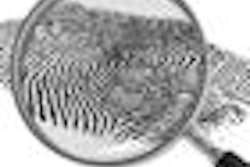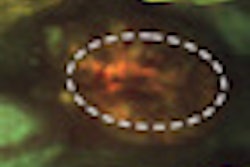In a clinical study designed to detect human papillomavirus (HPV) E6/E7 mRNA in routine clinical specimens of head and neck cancer, HPV status determined by the RNAscope HPV test was highly predictive of patient outcome and highly concordant with that determined by existing methods, according to Advanced Cell Diagnostics (ACD), manufacturer of the RNAscope.
The RNAscope test under development demonstrated 16% higher detection sensitivity than the HPV DNA test used in the study, according to the company.
The results were presented February 28 at the U.S. & Canadian Academy of Pathology annual meeting in San Antonio.
The RNAscope HPV test detects E6/E7 mRNA from seven high-risk HPV genotypes known to be associated with certain head and neck cancers. The study included 211 head and neck cancers from the oropharynx. It compared the RNAscope test with two other tests detecting HPV DNA and the cellular protein p16.
The RNAscope identified 78% of the cases to be positive for HPV, compared with 62% and 79% by the HPV DNA and p16 assays, respectively, the company reported. HPV-positive tumors as determined by RNAscope were associated with 77% lower risk of death following standard therapies (p < 0.001 for overall survival and disease-specific survival), compared to HPV-negative tumors.
"To determine whether a tumor is caused by HPV, it requires more than just detecting the presence or absence of the virus. Detecting transcriptionally active HPV in the tumor cells is critical to establish its presence as clinically significant," said James Lewis Jr. of Washington University in St. Louis, the principal investigator in this collaborative study, in a press release. "The RNAscope assay uniquely addresses this clinical need by detecting the viral E6/E7 mRNAs and allowing their direct visualization in the tumor cells."
"The incidences of HPV-associated head and neck cancers are increasing rapidly in the U.S. and worldwide, and the clinical community has been looking for a robust, definitive HPV test," said Xiao-Jun Ma, chief scientific officer of ACD. "E6/E7 mRNA has long been recognized as the best biomarker for HPV-associated cancers, but its detection by RT-PCR has been limited to research use only due to the complexity of dealing with formalin-fixed paraffin-embedded tissue specimens. This study demonstrated that RNAscope is well-suited for bringing E6/E7 mRNA testing into the clinic."



















